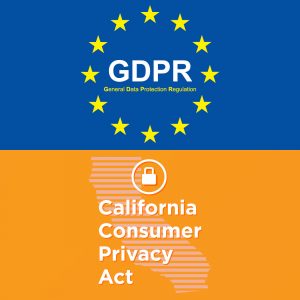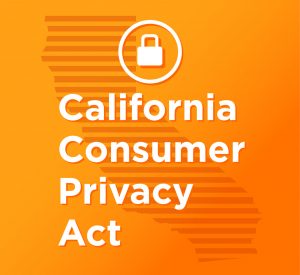 Imagine you’re an associate at a consulting firm. You’re surprised to see a new “AI Assist” button appear in your email application one morning. Without any training or guidance from your firm’s IT department, you decide to try it out, asking the AI to draft a response to a client’s inquiry about tax implications for a proposed merger. The AI confidently generates a response that looks professional and well-written, which you quickly review and send. Three days later, your managing partner calls you into their office—the AI cited outdated tax regulations and recommended a structure that would create significant liability for the client. The incident triggers an urgent internal review, revealing that dozens of employees have been using the undisclosed AI feature for weeks, potentially exposing the firm to professional liability and damaging client relationships.
Imagine you’re an associate at a consulting firm. You’re surprised to see a new “AI Assist” button appear in your email application one morning. Without any training or guidance from your firm’s IT department, you decide to try it out, asking the AI to draft a response to a client’s inquiry about tax implications for a proposed merger. The AI confidently generates a response that looks professional and well-written, which you quickly review and send. Three days later, your managing partner calls you into their office—the AI cited outdated tax regulations and recommended a structure that would create significant liability for the client. The incident triggers an urgent internal review, revealing that dozens of employees have been using the undisclosed AI feature for weeks, potentially exposing the firm to professional liability and damaging client relationships.
Articles Posted in California Consumer Privacy Act (CCPA)
CCPA Compliance Concerns for Employers as California Employees Return to the Workplace
As California reopens from the COVID-19 pandemic and workers begin returning to work in-person, many employers have begun requesting their employees provide, sometimes on an ongoing basis, certain health information before returning to the workplace. This includes information such as temperature checks, health surveys, COVID-19 test results, or proof of vaccination status. Given the likelihood that collecting this information will trigger certain requirements under the California Consumer Privacy Act (CCPA), employers should take certain measures to ensure they remain in compliance with the CCPA as their workplaces reopen.
California Sheds Light on Consumer Privacy Dark Patterns
COVID-19, COPPA and the CCPA: Educators Face Privacy Questions as Students Move to Remote Learning
 With the shelter-in-place orders imposed by the local and state governments, businesses are scrambling to transition to a virtual workforce and facilitating employees to work remotely from home. Educational institutions are no exception. School administrators and teachers have been working hard to create and implement plans to educate students at home, including maintaining a classroom curriculum through online platforms and incorporating daily or weekly interactions with the teacher and classmates through video chat or remote conferencing services.
With the shelter-in-place orders imposed by the local and state governments, businesses are scrambling to transition to a virtual workforce and facilitating employees to work remotely from home. Educational institutions are no exception. School administrators and teachers have been working hard to create and implement plans to educate students at home, including maintaining a classroom curriculum through online platforms and incorporating daily or weekly interactions with the teacher and classmates through video chat or remote conferencing services.
CCPA, GDPR and the Future of Cross-Device Tracking
 Efforts to regulate cross-device tracking have increased since we last addressed the topic in 2017, following the release of the FTC’s Staff Report. Significant developments include the implementation and enforcement of the EU’s General Data Protection Regulations (GDPR), and the fast-approaching implementation deadline for the California Consumer Privacy Act (CCPA). These regulations, while not targeting cross-device tracking specifically, seek to limit the way in which consumer data is tracked and sold.
Efforts to regulate cross-device tracking have increased since we last addressed the topic in 2017, following the release of the FTC’s Staff Report. Significant developments include the implementation and enforcement of the EU’s General Data Protection Regulations (GDPR), and the fast-approaching implementation deadline for the California Consumer Privacy Act (CCPA). These regulations, while not targeting cross-device tracking specifically, seek to limit the way in which consumer data is tracked and sold.
A Reminder that CCPA Compliance and GDPR Compliance Are Not the Same Thing
For any company that has tackled GDPR compliance, the new privacy rights introduced by the California Consumer Privacy Act of 2018 (CCPA) will seem pretty familiar. It might even be tempting to assume that by being GDPR compliant, one is already most of the way there in terms of preparing for the CCPA. In “Countdown to CCPA #2: GDPR Compliance Does Not Equal CCPA Compliance,” colleagues Catherine D. Meyer, Steven Farmer, and Fusae Nara explain how, similarities aside, there are significant differences between the two privacy laws.
Superman and the CCPA: Not-So-Secret Identities and the Power of “Personal Information” under the California Consumer Privacy Act
 Protecting consumer data privacy in the age of artificial intelligence and increased digital commerce is a growing concern. In June 2018, the California Consumer Privacy Act (CCPA) introduced provisions to protect consumers and became the first U.S. law that can be viewed as a response to GDPR. Going into effect on January 1, 2020, legislation of this scope has far-reaching tendrils that may breed unintentional consequences.
Protecting consumer data privacy in the age of artificial intelligence and increased digital commerce is a growing concern. In June 2018, the California Consumer Privacy Act (CCPA) introduced provisions to protect consumers and became the first U.S. law that can be viewed as a response to GDPR. Going into effect on January 1, 2020, legislation of this scope has far-reaching tendrils that may breed unintentional consequences.
 Internet & Social Media Law Blog
Internet & Social Media Law Blog



